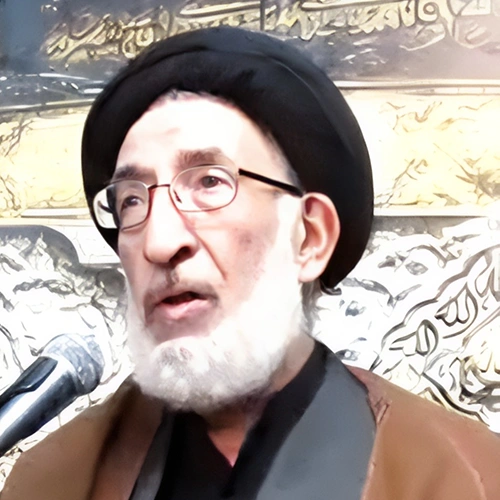Hujjat al-Islam Avayi
Manchester is known as an industrial and academic city, and this has made it one of the main destinations for immigrants in the UK. As a result, a significant number of Muslims have lived in this city for years. Due to this migration and the spread of Islam, the number of Islamic centres and mosques in the city has gradually increased. Hujjat al-Islam Avayi, who has eight years of experience as a permanent missionary in the UK, recently travelled to England for a short-term preaching mission and was a guest of the Friday Bulletin. Our fourth question in the interview reveals an idea that could serve as a model in Islamic preaching.
- What is the status of Muslims in Manchester and how is the relationship between locals and Muslims?
Manchester is located in the northwest of England and, with a population of nearly three million, is the second largest and most populous city in England after London. Tens of thousands of Muslims live in Manchester. Since the proportion of non-natives, especially Muslims, is higher in Manchester compared to many other cities in England, Muslims have a stronger presence. Many large businesses or professionals in various fields, especially in medicine, law, and others, are Muslims. Therefore, interaction between locals and Muslims in Manchester—viewed from the perspective of Islamophobia—is relatively smooth, and coexistence faces fewer issues. This success is largely due to the lifestyle, law-abiding nature, and patience of Muslims, which has helped attract locals and partially neutralize anti-Islam propaganda.
- Can you tell us about Friday Prayers in Manchester?
Due to population size and increasing immigration, there are many mosques and Islamic centres in Manchester, although there are no precise statistics, as the data has not kept up with the recent growth of Islam. Currently, three Shia Friday Prayers are held in Manchester: at Al-Hussein Mosque in Cheetham Hill, at the Jaffaria Centre (known as 404) in the Rusholme area, and in the Altrincham neighbourhood.
- What is your experience with Friday Prayers, and in which cities have you served?
In 2001, I was the founder of Friday Prayers in the city of Newcastle. However, during my eight-year tenure in the UK, I was mostly based in Manchester. I was not the Imam of Friday Prayer in Manchester, as the Islamic Centre of Manchester, due to observing the necessary religious distance between centres, was unable to hold Friday Prayers.
- I heard that when you left Newcastle, you handed over all your Friday sermon texts to the next Imam. Please tell us more about this thoughtful action.
I don’t know how you discovered that, but yes, one of the things I’m proud of in my preaching career is that I documented all the Friday sermons I delivered in Newcastle. When I left the city, I gave them as a gift to the next Imam and said, “These are the contents that have been presented. You can build your future sermons based on these topics.” It was a small act, but if this became a common practice, it could be more beneficial for the community and help attract more people to Friday Prayers.
- What are the consequences of an out-of-touch Friday Prayer leader?
Since the main purpose of this position and the prayer itself is to address social issues and update the faithful, a Friday Prayer leader who lacks awareness of the political, social, ethical, and cultural conditions of their region – or the ability to analyse and guide – will reduce the Friday Prayer to a purely ritual act. It will neither transform the believers nor protect them from cultural and political dangers.
- What should be done to create coordination and consultation among Friday Prayer leaders?
In Islamic countries, Friday Prayer leaders usually operate within a unified network under a governing body. This helps them get to know each other and share important information. But in a country like the UK, the lack of a unified leadership for Shia centres means Friday Prayers are held individually with local and personal orientations. If representatives of various religious authorities could come together to form a nationwide council of Friday Imams and an annual conference could be organized exclusively for them, it would lead to a significant positive transformation.
- Many Friday Prayer leaders still operate in a traditional manner. How effective do you think modern media can be in promoting cultural goals, and how can Imams make use of these opportunities?
We need to talk with Friday Prayer leaders and encourage them to implement media strategies alongside their sermons. At a minimum, three elements can serve as informative, influential, encouraging, and constructive tools:
- Uploading each centre’s Friday sermons to their websites.
- Producing attractive video clips of the most powerful moments from each Friday Prayer.
- Consulting reputable and advanced AI platforms to stay informed on the political, social, and cultural issues of their region or neighbourhood, so they can better direct their sermons.
editor's pick
news via inbox
Subscribe to the newsletter.




